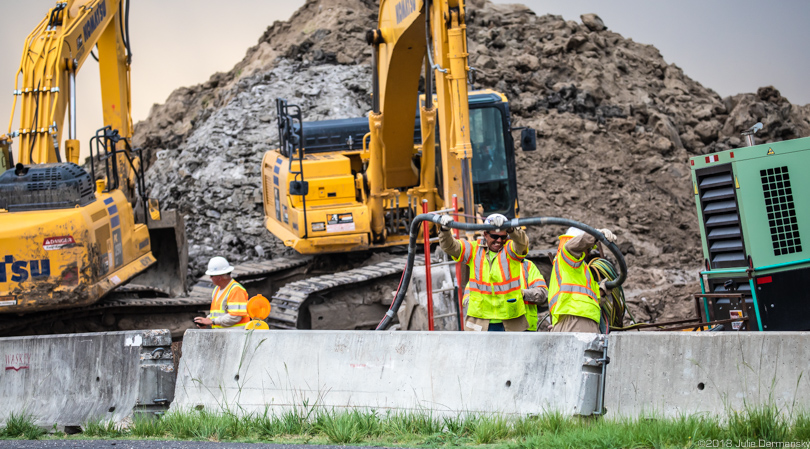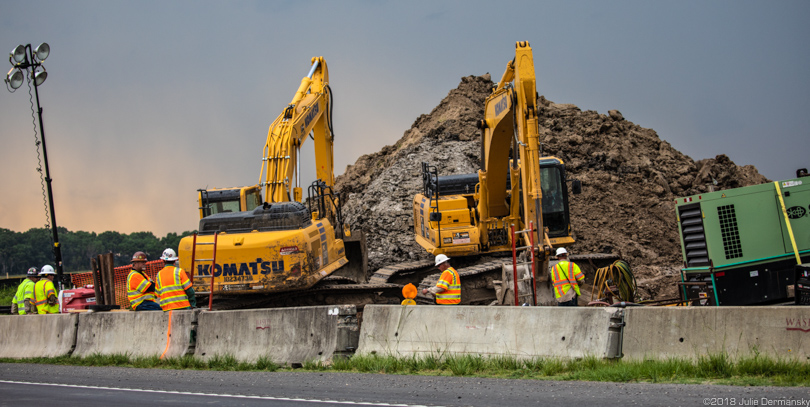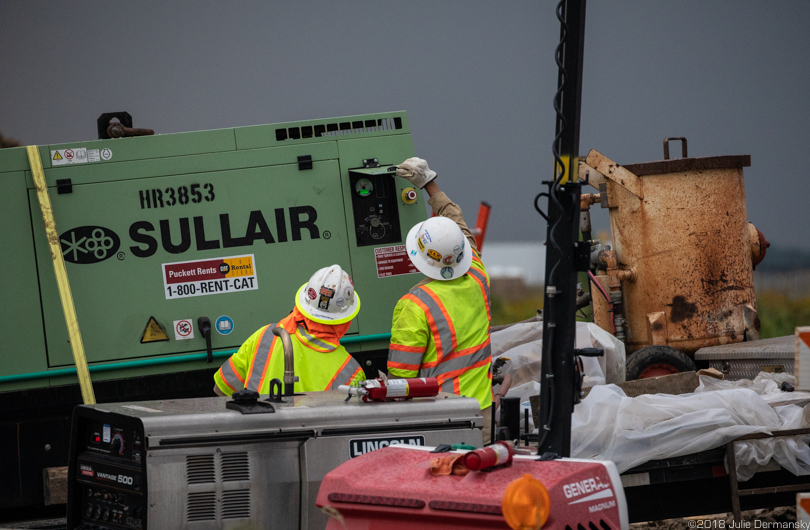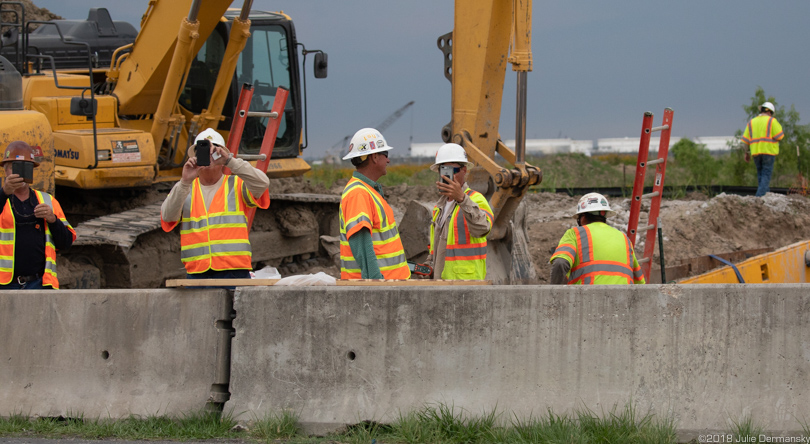Construction of the Bayou Bridge pipeline has continued in and around the Louisiana town of St. James despite a judge’s ruling that a state agency wrongly issued a permit allowing this oil pipeline to be built without an emergency and evacuation plan for the vulnerable town. A follow-up judgment formalizing the initial ruling came on May 15.
Judge Alvin Turner, Jr.’s decision, first made on April 30, pertains only to the final 18 miles of pipeline, which in full stretches across southern Louisiana, from Lake Charles, near the Texas border, to a railway terminal in St. James, a largely low-income African-American community. Those last 18 miles fall in a region classified as the coastal zone, an area regulated by the Louisiana Department of Natural Resources (DNR), which issued a costal permit for the pipeline.
St. James Pastor Harry Joseph is dismayed Bayou Bridge Pipeline LLC, a subsidiary of Dakota Access owner Energy Transfer Partners, appears undeterred by the judge’s order and has continued construction in the coastal zone.
“We stood up to an unjust permit and won,” Pastor Joseph said. “The judge ruled that letting the company build the pipeline without creating an evacuation route for the community is unjust. But the regulators and local officials are doing nothing to stop the construction.”
Ongoing work on the Bayou Bridge pipeline in St. James, which falls in the coastal zone of Louisiana.
Lisa Jordan, a lead attorney with the Tulane Environmental Law Clinic, told me that in her view the company is in contempt of court and the Department of Natural Resources should have stopped the work until the court order to create an emergency plan is followed. The law clinic is representing Pastor Joseph, the Gulf Restoration Network, Atchafalaya Basinkeeper, and H.E.L.P. (Humanitarian Enterprise of Loving People) in the successful lawsuit challenging the pipeline.
These plaintiffs originally sued the Louisiana Department of Natural Resources because St. James, located along the Mississippi River and surrounded by many recently built oil storage tanks and chemical plants, now has only a single road into and out of the community. Residents say should an emergency result from a pipeline failure, they would be left without a way to escape. Judge Turner agreed with this evaluation in his ruling.
In a letter Jordan sent to a lawyer for Bayou Bridge Pipeline LLC, she pointed out that the court ordered that the company provide an effective emergency response and evacuation plan to DNR “prior to the continued issuance of said permit.” She demanded that the company cease construction until the company “complies with the court’s order and DNR has issued a legal permit.”
Light rain coats equipment in St. James, Louisiana at a Bayou Bridge pipeline construction site.
I asked Energy Transfer Partners if it thought continued work on the pipeline was going against the court order, but the company did not respond.
On Friday, May 18, I drove to St. James, pulling off the road to shoot ongoing construction near the end of Burton Lane. As I shot photos in a light rain that evening, pipeline workers photographed me with cell phones. After about 10 minutes, a sheriff came to see what I was doing. I explained that I was documenting the continued construction because the plaintiffs in a lawsuit challenging the pipeline’s permit considered the work illegal.
After checking my driver’s license and press credentials, the sheriff asked if I had gotten what I needed. I replied that I had and continued on my way.
Pipeline workers taking photojournalist Julie Dermansky’s picture in St. James as she photographed them working while a light rain fell on May 18.
Local sheriff pulls up while photojournalist Julie Dermansky is working to see what she’s doing.
Jordan also sent a letter to DNR asking the agency to stop the company from working on the pipeline in the coastal zone. “We are concerned that the DNR is in contempt of court in failing to order Bayou Bridge to cease and desist construction activities until it, and DNR have complied with the Court order and unless and until DNR issues a legal permit,” the letter states, before asking that the agency take immediate action.
However, according to DNR, the ongoing work in the coastal zone is still permissible. Patrick Courreges, communications director for the agency, explained to me: “Basically, the judge’s ruling is not executory — meaning it can’t be fully executed, until either we have decided not to appeal or 30 days from the day the judgment came out have run out, to give us the opportunity to appeal.”
Furthermore, if DNR were to tell the company to stop work before the agency decides whether or not to appeal, or if the 30 days haven’t run out before a decision is made, Courreges said, “DNR technically doesn’t have a legal leg to stand on.” The agency can’t demand Bayou Bridge stop work before deciding its next move, he said, not without a restraining order or injunction filed against the company. “They are not breaking the law,” he said.
At first, Pastor Joseph was surprised that construction of the pipeline didn’t stop after they won their case, but he sees it as a sign of the times. “If the president of the United States can behave as if the laws don’t apply to him,” he mused, “why should we expect the pipeline company to obey the law?”
Main image: Workers proceed with construction of the Bayou Bridge pipeline in St. James Louisiana. Credit: All photos by Julie Dermansky ©2018
Subscribe to our newsletter
Stay up to date with DeSmog news and alerts










